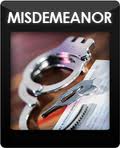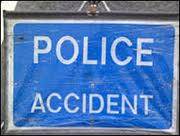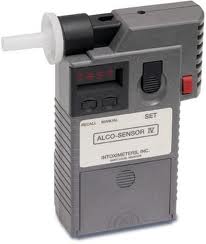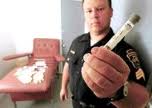Escondido Police conducted a sobriety checkpoint in February 2011. According to 10news.com, one of the drivers passing through, Angel Navarrete, and his passenger, Daniel Alfaro, challeged the officers’ reason for the detention and videotaped the outcome. After not complying with the officers’ request to roll down his window and show his driver’s license, the officer proceeded to smash his window and arrest both men for resisting a police officer. Both plead not guilty and are due back in court in July 2011.
Resisting arrest is addressed under Penal Code Section 148, which states: “Every person who willfully resists, delays, or obstructs any public officer…in the discharge or attempt to discharge any duty of his or her office or employment, when no other punishment is prescribed, shall be punished by a fine not exceeding one thousand dollars ($1,000), or by imprisonment in a county jail not to exceed one year, or by both that fine and imprisonment.”
The California Criminal Jury Instructions (CALCRIM) provide what the prosecutor must prove beyond a reasonable doubt for a conviction for resisting, delaying, or obstructing an officer, (see CALCRIM 2656): 1.) The person was a peace
officer lawfully performing or attempting to perform his duties as a peace officer; 2.) The defendant willfully resisted, obstructed, and/or delayed the person in the
performance or attempted performance of those duties; and, 3.) When the defendant acted, he knew, or reasonably should have known, that the person was a peace officer performing or attempting to perform his duties.
So was the officer acting lawfully? If not, the defendant must be found not guilty. CALCRIM 2670 provides: A peace officer is not lawfully performing his or her duties if he is unlawfully arresting or detaining someone or using unreasonable or excessive force when making or attempting to make an otherwise lawful arrest or detention.
Unlawful Detention: A peace officer may legally detain someone if the person consents to the detention or if specific facts known or apparent to the officer lead him to suspect that the person to be detained has been, is, or is about to be involved in activity relating to crime; and, a reasonable officer who knew the same facts would have the same suspicion. Any other detention is unlawful.
Unlawful Arrest: A peace officer may legally arrest someone if he has probable cause to make the arrest. Any other arrest is unlawful. Probable cause exists when the facts known to the arresting officer at the time of the arrest would persuade someone of reasonable caution that the person to be arrested has committed a crime.
DUI checkpoints must be conducted under the guidelines of Ingersoll v. Palmer in order for it to be constitutional. One of the criteria is the length and nature of the detention. “Each motorist stopped should be detained only long enough for the officer to question the driver briefly and to look for signs of intoxication, such as alcohol on the breath, slurred speech, and glassy or bloodshot eyes. If the driver does not display signs of impairment, he or she should be permitted to drive on without further delay. If the officer does observe symptoms of impairment, the driver may be directed to a separate area for a roadside sobriety test. At that point, further investigation would of course be based on probable cause, and general principles of detention and arrest would apply.”
It should be further noted that a driver can avoid the checkpoint and the officers cannot detain him or her unless “in avoiding the checkpoint the driver did anything unlawful, or exhibited obvious signs of impairment.”
In this case, the driver was not intoxicated and he had a valid driver’s license. He chose to drive through the checkpoint. He spoke to the officers through his window. The officers said he was detained, but they would not state a reason why. They threatened to arrest him for obstructing or delaying an officer because he refused to produce his license. Since he did not have signs of impairment, the officers should have let him proceed after a brief encounter.
Continue reading ›
 While intoxicated, Richard W. Walker, 20, was riding a dirt bike in the street in Channahon, Illinois. He was arrested and charged with DUI and other crimes, according to heraldnews.suntimes.com.
While intoxicated, Richard W. Walker, 20, was riding a dirt bike in the street in Channahon, Illinois. He was arrested and charged with DUI and other crimes, according to heraldnews.suntimes.com. San Diego DUI Lawyers Blog
San Diego DUI Lawyers Blog






 A
A  After the incident, he was taken to Chula Vista Police Department and booked on suspicion of
After the incident, he was taken to Chula Vista Police Department and booked on suspicion of  The
The  The Florida Fifth District Court of Appeal heard arguments this week on whether law enforcement can forcibly draw blood from certain DUI suspects. Currently, Florida law allows forced blood draws without a search warrant in suspected drunk driving cases involving death or serious injury.
The Florida Fifth District Court of Appeal heard arguments this week on whether law enforcement can forcibly draw blood from certain DUI suspects. Currently, Florida law allows forced blood draws without a search warrant in suspected drunk driving cases involving death or serious injury. San Diego Police Department conducted a
San Diego Police Department conducted a